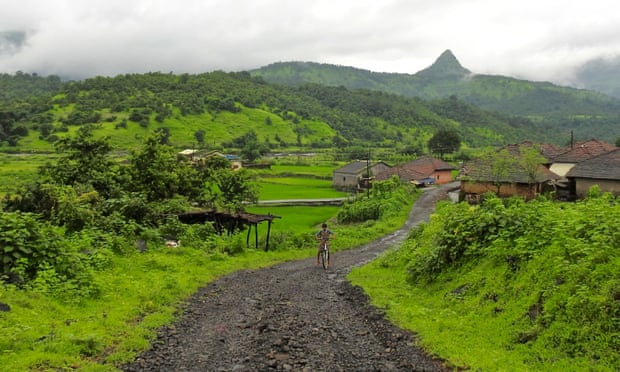- UID
- 20
- Online time
- Hours
- Posts
- Reg time
- 24-8-2017
- Last login
- 1-1-1970
|
|
━━━━━━━━━━━━━━━━━
A scheme training people to host outsiders is creating alternative livelihoods that will help build resilience against climate crisis and stem migration for Indian families.

The village of Dehene in the state of Maharashtra, where Grassroutes has introduced its community-based tourism model. Photograph: Anne Pinto-Rodrigues
▼ Datta Kondar leads a group of tourists through his village in Maharashtra to view the firefly spectacle for which it is so famous. With the arrival of the monsoons in June, thousands of fireflies emerge at twilight and perform an elaborate courtship ritual, signalling to prospective mates with their glowing bodies in a mesmerising show.
Being a tour guide is not what Kondar, 36, had planned. In 2003, he took the typical route of many rural Indians, travelling to the city in search of work. But he found himself unable to cope with the gritty realities of life in Mumbai and returned to his village, Purushwadi, within a year.
“I would rather earn 5,000 rupees [about £60] in my village than 15,000 rupees in the city,” he says.
Back home he was recruited by Grassroutes, a social enterprise conducting a pilot for community-based tourism. The idea of Mumbai entrepreneur Inir Pinheiro, Grassroutes aims to reduce migration from India’s villages by creating job opportunities. Nearly two-thirds of India’s 1.3 billion population live in rural areas.
“Our primary focus is to empower rural communities. But we also want to celebrate the cultural diversity of India,” says Pinheiro. Currently, about 900 families across 16 villages in Maharashtra, Andhra Pradesh, Madhya Pradesh and Gujarat are part of the programme.
Nearly 95% of the tourists are Indian. “There is a huge urban-rural divide in the country and we want to bridge that gap. By having urban Indians live with rural families, we hope that these interactions will foster an understanding of life on the other side,” says Pinheiro.
Once the villagepanchayat(council) has approved the project, locals are trained in all aspects of tourism – hospitality, communication, cleanliness and hygiene, as well as safety procedures. They are taught to showcase their culture, lifestyle and the natural beauty of their village. Once the training is complete, Grassroutes promotes the village and handles bookings. But it is the villagers who own, manage and run all the activities.
Villagers are paid on a bi-weekly basis, ensuring people have a (▪ ▪ ▪)
► Please, continue reading this article here: Source |
|